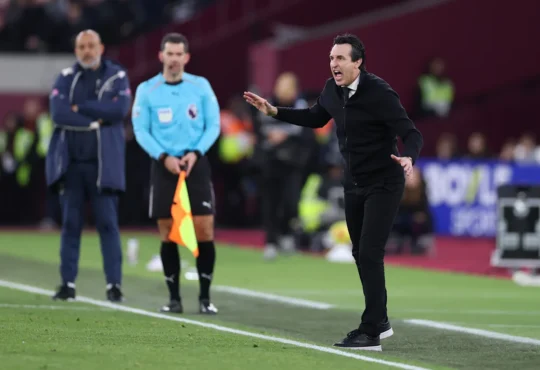
Buying Your Dream House Is a Career Decision: 3 Considerations For Dual-Income Families
getty
My spouse and I both work and have good salaries, but in today’s market we’re aggressively saving one of our incomes in case something happens. My spouse wants to buy a bigger home (we have three kids). I work in tech and am worried about layoffs. We can live on one income now but not if we get a much bigger house. And a down payment would eat up a large chunk of the savings we’ve been so good about stashing away. My spouse thinks I’m overly cautious — we live in a desirable neighborhood so the home likely wouldn’t lose value. Who’s right? – Team Starter Home
This tech professional is proactive in thinking about job security and a dwindling emergency fund before deciding on a bigger home. However, the choice between starter home and dream house isn’t just a financial decision. Buying your dream house is a career decision in many ways. Added financial pressure (say, from buying a dream house) might actually be a career boost.
Here are three considerations for dual-income families:
1. Will The Financial Stress Of A More Expensive Home Work For Or Against You?
The financial stress of a more expensive home includes carrying a bigger mortgage, reducing savings to come up with a bigger down payment and committing to higher expenses on an ongoing basis. However, stress has both positive and negative benefits, so think about what applies to your career specifically.
Negative Career Effects Of Financial Stress
If you do lose your job, the higher expenses of the dream house shorten your runway to look for a new job. If you want to change jobs, you may feel pressured to only consider those roles, companies and industries that can meet your minimum compensation requirements. If you want to pursue a business idea, get a graduate degree or make some other career investment, you have less money to invest in yourself now that you’ve tapped your savings for a down payment on the dream house.
Positive Career Effects Of Financial Stress
That said, stress on muscles makes them stronger. You might be the type of person that needs a challenge to step up. The higher expenses could be the kickstart you need to ask for a raise and/ or promotion rather than settling for ghost growth. You might finally start that side hustle. Balancing a tighter budget now might make you finally review your expenses and be more disciplined in other spending categories.
2. Will The Extra Space Of A Bigger Home Support Or Distract You?
With three kids, it’s not hard to imagine why this dual-income couple covets more space. Your environment is also part of your career foundation. More space has both pros and cons to your career.
Negative Career Effects Of A Bigger Home
A bigger home is a bigger responsibility – more space to clean, more structural elements to maintain (e.g., windows), potentially more outdoor space to take care of. Even if you outsource all of this (which adds to the financial stress in Point 1), there is still the time and the mental bandwidth it takes to manage the help you hire. Do you want to focus your management and leadership energy on running a bigger household or amassing the C-suite level experience you need at work?
Positive Career Effects Of A Bigger Home
That said, more space is useful even if you don’t have kids. Extra room means dedicated work space to focus on career advancement activities you might not have time for during the workday. A bigger home might encourage you to host more parties, which can grow your network. Personal space to meditate, journal or work on a hobby might lead to ideas to launch a new business, pivot your career or advance where you are.
3. Which Decision Can You Stand Behind In Good And Bad Times?
There is no one-size-fits-all decision in the fight between Team Starter Home and Team Dream House. To find the best fit for you, write two competing stories – one where you stay put; and one where you buy the dream house. Outline the good and bad from each decision one, three, ten years from now, and see which story you’re willing to risk.
The Downside Of Staying Put
You decide to stay in the starter home, and your savings continue to grow. Without the financial stress, you invest your energy your career, and it continues to blossom! But your spouse is unhappy – will that resentment grow? Will financial stress be supplanted by relationship stress? As it turns out, you didn’t get laid off, so did you play too small and not up to your true career potential?
The Downside Of Taking A Big Risk
You swing for the fences and buy the dream house. With room to spread out, you’re living the dream! But the dream is expensive. You commit to make more money – whether by negotiating a raise, finding a better job or growing a side business, but that doesn’t happen as easily as you expect. The dream house becomes an anchor dragging you down. Your spouse is ecstatic, but the house was their dream – will your resentment grow? Can you enjoy or even focus on the present when you’re so anxious about the future?
There Are Other Scenarios To Consider Than Just Starter Home Or Dream House
When you’re stuck on a decision that seems either/or (e.g., dream house or starter, quit a job or not), force yourself to think of at least three other options unrelated to the obvious choices. For example, you could rent a dream house, pushing off the decision to buy but experiencing dream living for a while. You could take the money for the dream house and buy rental property instead – the additional rental income may enable you to buy your dream house more easily down the road. In lieu of a larger dream house, buy a smaller second home to pair with your starter home – it gives you the space but with a smaller price tag, and you may be able to rent the second home or addition if you no longer need it.
You might decide that none of these options ultimately work for you, but it’s still a good exercise. You get unstuck from all-or-nothing thinking. You get creative. You show yourself that any one decision is not an ultimate – you always have choices.







